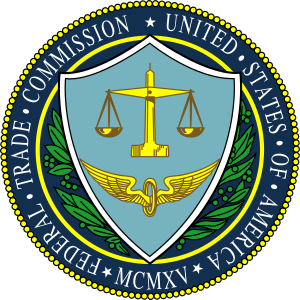
| Entities | |
| Topics and Issues | "Dark Patterns" (2) Algorithms (12) Privacy (42) |
The FTC announced a call for presentations for PrivacyCon 2022. On November 1, 2022, the FTC will host its seventh annual PrivacyCon. “PrivacyCon 2022 will bring together a diverse group of stakeholders, including researchers, academics, industry representatives, consumer advocates, and government regulators, to discuss the latest research and trends related to consumer privacy and data security. The call for presentations seeks empirical research and demonstrations research related to: automated decision-making systems; commercial surveillance; and other consumer privacy and security concerns.”
Of note:
Focus topic 1: Automated Decision-making Systems
- Algorithmic Bias and Ensuring Fairness in Algorithmic Use. Fairness engineering methods and bias evaluations of machine learning models are rapidly being incorporated into AI “auditing” frameworks and evaluations. Do auditing methods adequately assess algorithmic bias and fairness? What metrics are reliable for evaluating and effectively addressing unlawful algorithmic bias?
- Information Management and Data Provenance. Issues relating to data quality, secondary use, the overcollection of data, and extended retention of data have become increasingly salient to conversations around implementations of AI technology. What methods are most appropriate for addressing these concerns? Are these concerns more pronounced in certain contexts or applications? What are best practices for ensuring greater transparency regarding data provenance?
- AI Validation, Explainability and Benchmarking. What is the current state of auditing as an industry and in research practices? What would best practices for validating, benchmarking, and evaluating AI systems look like? What is the efficacy of audits as an accountability mechanism? What, if any, impediments exist that can limit or hinder one’s ability to employ best practices?
- Impact of Automated Decision-making on Underserved Consumers. What are the best approaches for identifying intersectional privacy and security harms related to automated decision-making (i.e., harms that affect or are more pronounced amongst individuals or communities that experience more than one form of marginalization or have multiple protected statuses)? What are the best approaches for researching and addressing the harmful effects of automated decision-making on marginalized, underserved, or protected status individuals or communities?
Focus topic 2: Commercial Surveillance
- Workplace Monitoring and Algorithmic Management. In the shift to remote work environments a growing number of employers increased their use of worker monitoring and algorithmic management technologies. What are the implications of the increased use of these tools? How did the shift to remote work impact the privacy and security of consumers?
- Advertising Ecosystem and Surveillance Advertising. On which practices do companies rely to obtain personal consumer data? Are companies using this consumer data to manipulate consumer behavior? What harms do consumers experience due to the collection of their personal data for advertising purposes? What benefits can consumers realize from the collection of their personal data? Do the online advertising ecosystem and related business models that rely on the monetization of consumer data incentivize new consumer surveillance practices, and if so, what are those practices and what effect do these practices have on consumer privacy and security?
- Biometric Surveillance. As biometrics are being implemented in both public and private sector contexts they have profound implications for consumer privacy and data security. A range of privacy issues may be exacerbated by emerging technologies (such as new types of smart devices, and virtual and augmented reality). In particular, biometric data collecting technologies and systems introduce complexities around accuracy, where increased technical accuracy can translate into more invasive forms of consumer surveillance. How are consumers impacted by public and private sector uses of biometric technologies? How should regulators think about and evaluate accuracy concerns? How are competition and consumer protection concerns implicated – jointly and separately – by the use of biometrics?
General research topics. In addition to presentations on commercial surveillance and automated decision-making systems, PrivacyCon 2022 will accept research submissions on broader consumer privacy and security issues, with a particular interest in the following areas:
- Exploring Novel Remedies and Approaches Aimed at Improving Privacy and Security Practices to Help Consumers (e.g., Algorithmic Deletion, Mandated Data Practices)
- Short- and Long-Term Impacts of Mergers and Acquisitions on Privacy and Security Practices
- Privacy and Security Protection of Underserved Communities
- Child and Teen Privacy Risks, Harms, and Vulnerabilities
- Effectiveness of Consumer Privacy and Security Disclosures, Defaults, Choice Architecture, User Interfaces, and Other Approaches to Affecting Consumer Access and Control Over Information
- Consumer Behavior Related to Privacy and Security Risks and Commercial Influences on Consumer Behavior regarding Privacy and Security (e.g., Dark Patterns)
- Data Governance and Information Security Practices to Prevent Data Breaches
- Effects of Government Regulation and Interventions